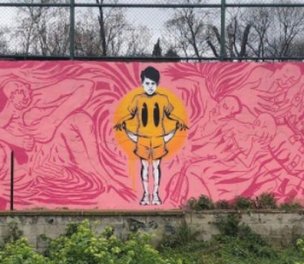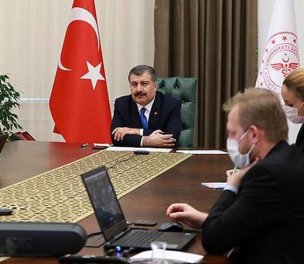PAST WEEK IN TURKEY
A not-so-full lockdown with an alcohol ban and vaccine shortage
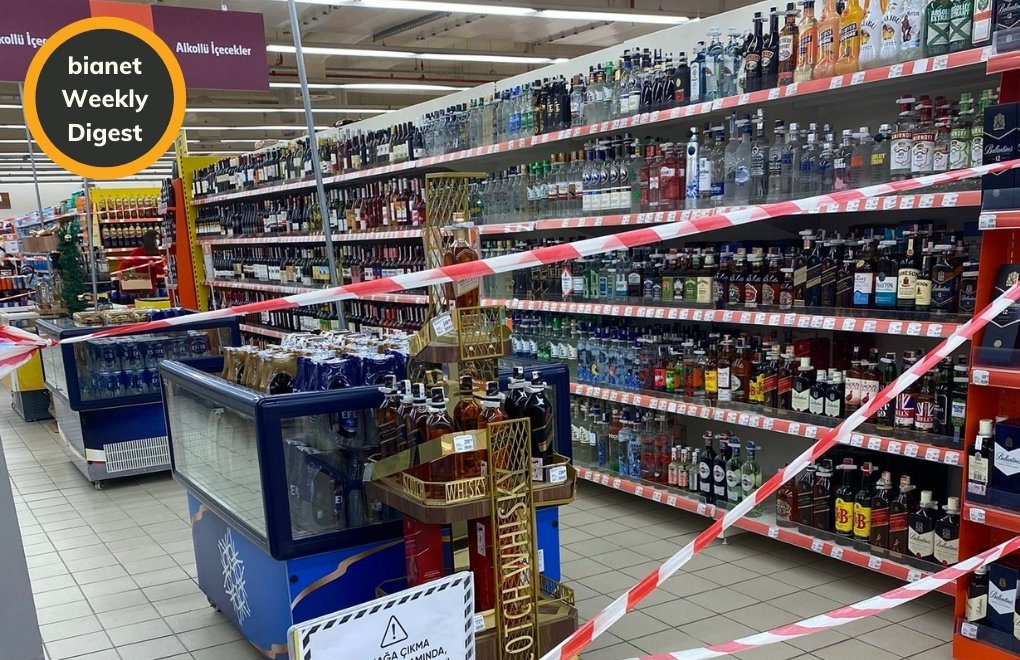
A grocery store taped off its alcoholic bevrages section during a weekend lockdown.
Here is bianet's weekly summary of important events concerning politics, the coronavirus pandemic, environmental issues and human rights in Turkey:
The 17-day lockdown
• All production and touristic facilities will be open during the 17-day lockdown
• The government hasn't announced any economic support package for those who will have to stay at home
• Alcohol sale ban during the lockdown causes public outrage
• Ministry extends second dose interval for Covid vaccines and admits shortage
As Turkey is experiencing the third and the hardest coronavirus wave, the government has announced what it calls a "full lockdown" starting from Thursday (April 29) until May 17.
However, a long list of exempted people and businesses and the lack of economic support for the people who will have to stay at home during the lockdown has caused criticism by professional organizations and trade unions.
Production and manufacturing facilities, construction sites, hotels and other touristic facilities are among those exempted from the lockdown.
More than 60 percent (16.4 million) of the employees in the country will be exempted and over 22 percent will be partially exempted, according to a report by the Confederation of Progressive Trade Unions of Turkey Research Center (DİSK-AR).
DİSK said on Wednesday that all production and services apart from vital services should be halted and people should be provided with income support.
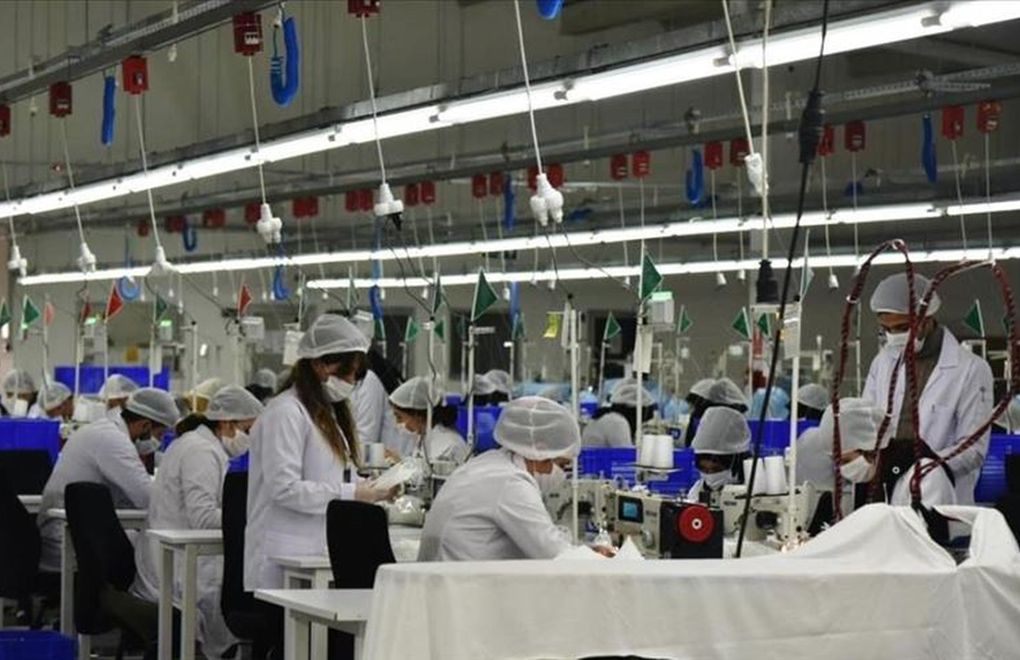 Factories never stopped working during the pandemic. (Photo AA/File)
Factories never stopped working during the pandemic. (Photo AA/File)
The Turkish Medical Association (TTB) on Tuesday stated that the new measures were not aimed at protecting public health as employees workers would continue to work and no solution was offered against the impoverishment of the people who were going to stay at home.
While Turkey reported to international organizations that it had provided 638 billion lira (77.7 billion USD) of coronavirus support to the people affected, only 10 percent of this money was as part of social support programs whereas the other 90 percent consisted of the postponement of premium payments, debt restructuring and granting new loans to the people and businesses, noted the TTB.
According to IMF figures, Turkey used only 1.9 percent of its GDP for pandemic expenditures between January 2020 and March 2021 and was in the group of the lowest spending countries.
Turkey has avoided imposing a full lockdown since the start of the pandemic and political parties and professional organizations demanding this were at times accused by the pro-government media of wanting to cripple the country's economy.
A loosely implemented weekend lockdown and weeknights curfews have been in place since early December.
Read more on Covid-19 and labor in Turkey:
Covid-19: A working class disease
Nearly Half of Worker Fatalities in April 2020 Caused by Covid-19
'Rate of Covid-19 Cases Among DİSK Members 3.2 Times Higher Than Turkey Average'
'Blue collars are equal in neither life nor disease'
The alcohol ban
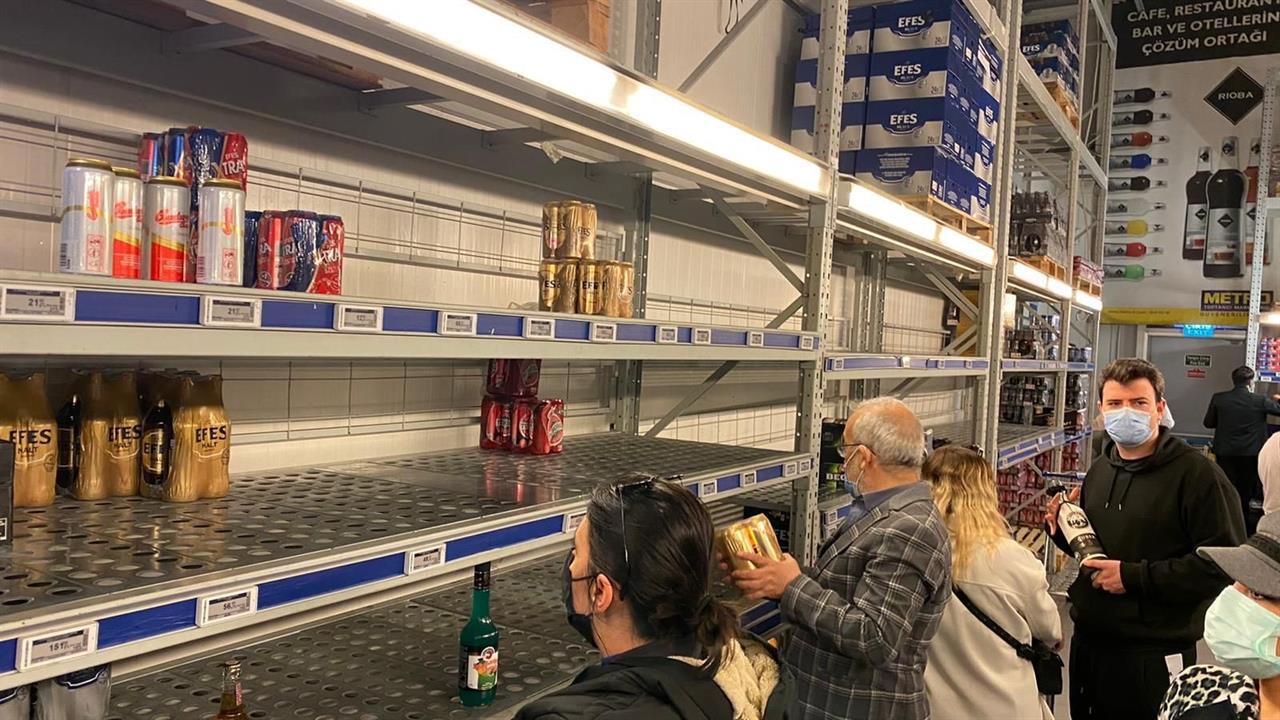 Photos circulating on social media show empty shelves of alcoholica beverages ahead of the lockdown.
Photos circulating on social media show empty shelves of alcoholica beverages ahead of the lockdown.
The government has also imposed a ban on alcoholic beverage sales during the lockdown in a move that is considered politically motivated by critics.
While the Ministry of Interior circular specifying the lockdown conditions makes no mention of alcohol sales, Minister Soylu said on Tuesday that liquor stores were not exempted from the lockdown and would remain closed.
A day later, he said grocery stores, which will be open during the lockdown, would also be banned from selling alcoholic beverages.
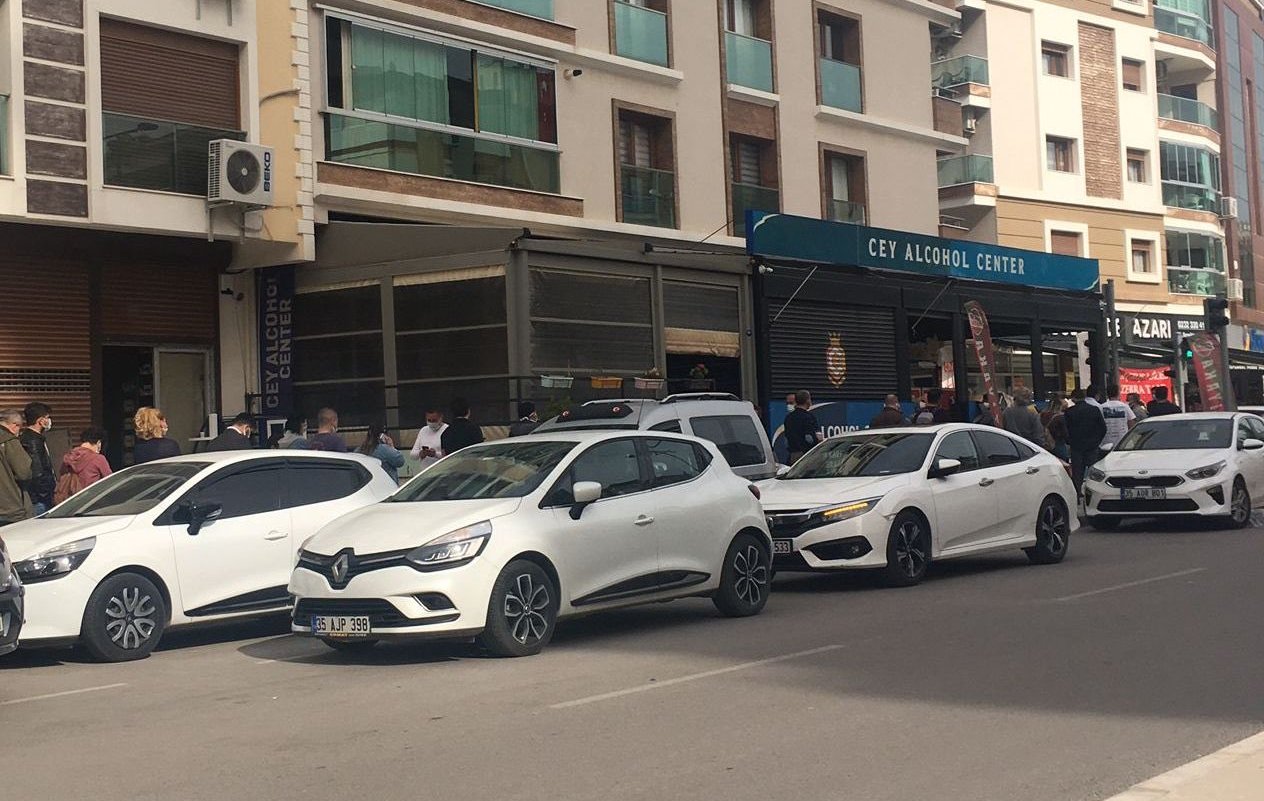 People queue up in front of a liquor store in İzmir (Photo: Twitter)
People queue up in front of a liquor store in İzmir (Photo: Twitter)
The ban caused public outrage on social media with the "Don't touch my alcohol" (#alkolümedokunma) hashtag becoming a trending topic.
Many social media users, as well as opposition politicians, said the ban had nothing to do with the pandemic and the government used it as an excuse to interfere with the people's lifestyles.
The ruling Justice and Development Party (AKP) has received similar criticism over the excessive taxation of alcoholic beverages and the prohibition of alcohol sales at liquor shops after 10 p.m.
The vaccine shortage
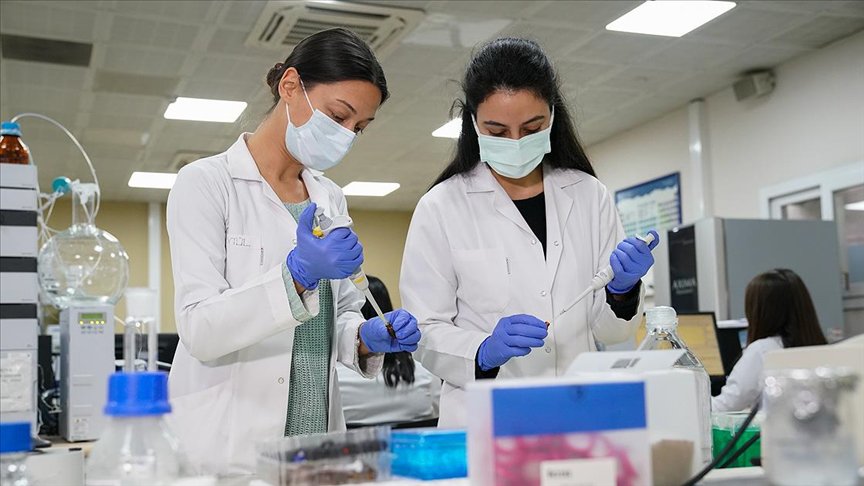 While Turkey is having difficulties in imorting vaccines, its domestic vaccines are still in phase 2 trial. (Photo: AA/File)
While Turkey is having difficulties in imorting vaccines, its domestic vaccines are still in phase 2 trial. (Photo: AA/File)
Minister of Health Fahrettin Koca on Wednesday admitted that the country will have a vaccine shortage in the next two months but promised an "abundance of vaccines" after that.
On Monday, the minister blamed China's Sinovac company, on which Turkey mostly relied for vaccine procurement, saying that it hadn't fulfilled the agreement.
While more than 25 percent of the country's population have received at least one vaccine jab, vaccination slowed down over the past week.
As of 5 p.m. Wednesday, Turkey inoculated 22.2 million people with 8.7 million having received two vaccine doses, according to the ministry's vaccine tracker.
The number of inoculations was 20.9 million as of April 23, which means the country was able to vaccinate about 1.3 million people in five days, well under its capacity. Both the minister and doctors' organizations previously said Turkey could vaccinate a million people per day if it had enough vaccines.
Meanwhile, the ministry extended the interval between the doses of Pfizer's BioNTech vaccine, of which it has procured about four million doses, Koca also said in a televised speech on Wednesday. He didn't clarify whether this decision was taken due to the shortage or for medical reasons.
The minister said in February that the country would have 100 million doses and would have vaccinated at least 50 million people by the end of April.
Read more on the coronavirus pandemic in Turkey:
With current speed, Turkey may need 'more than a year' to administer 100 million vaccine shots
'We might face a dangerous mutation unique to Turkey'
Covid vaccination rate much lower in eastern, southeastern provinces
14 education personnel died of coronavirus in Turkey in a week
İstanbul has seen 1,118 excess deaths in a week
'There are no vaccines, no appointments, but perception management in Turkey'
AKP lists "genocides" committed by the US, Armenian MP threatened
After US President Joe Biden recognized the Armenian Genocide on April 24, the government and all opposition parties represented in the parliament except the Peoples' Democratic Party (HDP) condemned the move.
In a declaration adopted by the four other parties on Tuesday, — the ruling AKP, its ally Nationalist Movement Party (MHP), the main opposition Republican People's Party (CHP) and its ally İYİ (Good) Party — the parliament "strongly and regretfully condemned" Biden's remarks.
President and AKP Chair Recep Tayyip Erdoğan did not immediately respond to Biden's statements but he also condemned the move on Monday, repeating Turkey's official thesis that not only Armenians but also Turks and other peoples were killed and expelled from their lands in the late 19th century and the early 20th century.
The AKP also prepared a list of atrocities committed by the US, entitled "The Genocide Record of the USA." The list containing 31 items includes the genocide of indigenous peoples of America, the enslavement of African peoples and several wars waged by the US.
Amerika Birleşik Devletleri'nin Soykırım Karnesi:#BatınınUtançTarihi pic.twitter.com/GR8YOK97Kf
— Dr. Leyla ŞAHİN USTA ???????? (@leylasahinusta) April 24, 2021
Ironically, it also includes wars that were supported and/or participated by Turkey, namely the Korean War, the invasion of Iraq, the invasion of Afghanistan and the Syrian War.
The Arab Spring, the Bay of Pigs Invasion, the Israel-Palestine conflict, the Darfur Genocide, which Erdoğan at the time denied, saying, "Muslims don't do genocides," are also on the list.

HDP deputy Garo Paylan, an Armenian of Turkey, was threatened by independent MP Ümit Özdağ over his remarks about the genocide.
On April 24 Genocide Remembrance Day, Paylan complained that there are still streets and schools that are named after Talat Pasha, who was the Ottoman Empire's minister of interior during the genocide.
"After 106 years, we walk on streets named after Talat Pasha, the architect of the Genocide. We educate our children at schools named after Talat Pasha," he wrote on Twitter. He likened the situation to naming schools and streets after Hitler in Germany.
Quoting his tweet, Özdağ wrote, "Impudent provocateur man. If you are not content, go to hell. Talat Pasha didn't expel patriotic Armenians but those who stabbed us in the back like you. When the time comes, you'll also have a Talat Pasha experience and you should have it."
Read more on this topic:
Criminal complaint against Ümit Özdağ after threatening Garo Paylan
Paylan: Only Turkey's parliament can heal wounds of Armenian people
'Genocide' investigation against Diyarbakır Bar Association
'Biden's remarks contradict science and law,' says Parliamentary Speaker
Presidential Spokesperson to Biden: Turkey will respond in time
Turkey becomes Europe's plastic waste dump
 Photo: Greenpeace
Photo: Greenpeace
Greenpeace announced on April 26 that Turkey was the biggest importer of plastic waste from European countries in 2020.
According to the statement, Turkey's plastic waste import increased by 13 percent in a year and 241 truckloads of plastic waste came to Turkey every day last year. The amount of plastic waste coming to Turkey from Europe has seen a 196-fold increase in the last 16 years.
Raising concerns about the issue, Greenpeace noted that "following China's ban on plastic waste import in 2018, the new destination for plastic waste has become Turkey, where plastic waste import is increasing incrementally with each passing year."
Read more on this topic:
Imported plastic waste poisons air and water in Adana
Turkey becomes one of the new destinations for illegal plastic waste trade
Turkey's plastic waste import increased by 173 times in 15 years
Thirty-seven percent of EU's waste comes to Turkey
Greenpeace finds tons of plastic waste imported from Italy, files complaint
AKP hinders İstanbul Municipality's cheap bread buffets
Two district municipalities led by the AKP in İstanbul attempted to prevent the opposition-led Metropolitan Municipality from setting up cheap bread buffets.
A brawl occurred between municipal police officers of the Ümraniye Municipality and the Metropolitan Municipality on Tuesday while people protested the AKP municipality.
While the Ümraniye Municipality officials were trying to prevent the İMM teams from setting up the buffet, citizens came to support the İMM teams and protested the Ümraniye Municipality. A woman said,
"We also want to eat hot bread from the bakery, to buy it from the bakery; sell it for 1 lira as well so that everyone can buy it from there. Enough is enough. You have made people sick and tired of their life. You have taken away people's lives, houses and homes."
The Ministry of Agriculture and Forestry and the city municipal council, where the AKP and the MHP have the majority, previously tried to prevent the Metropolitan Municipality from increasing the number of bread buffets but stepped back after public reactions.
Read more on this topic:
İstanbul sets up mobile cheap bread buffets as queues get longer
İstanbul's Municipal Council approves opening of new bread buffets
Interior Ministry Blocks Coronavirus Donations to İstanbul, Ankara Municipalities
HighlightsPolitics ➟ President Erdoğan sacked the minister of trade after it was revealed that the ministry bought nine million lira worth of disinfectant supplies from her company. It was later surfaced that the company benefited from 1.4 million lira investment support SIPRI: Turkey's military expenditures decreased in 2020, marking an exception in a 10-year trend ➟ Turkey launched a new military operation into Iraq's Kurdistan region ➟ Thodex cryptocurrency fraud: Red notice for company owner, dozens detained in probe... Human rights and freedom of expression ➟ The number of individual applications to the Constitutional Court is gradually increasing, says the court's president. "The workload of the Turkish Constitutional Court is so heavy that it cannot be compared with that of the courts fulfilling the same duty in other countries." ➟ Boğaziçi University protests: Police tore down students' library while the minister of transportation and the appointed rector were giving speeches at an event at the university ➟ METU students keep watch for campus stairs in rainbow colors... The students have put up tents and started keeping watch near the campus stairs that they painted in rainbow colors so that the METU administration will not paint over them again ➟ "Pandemic measures make the situation of imprisoned children even worse": The Civil Society in the Penal System (CISST) has released a statement on the rights violations against and the impact of pandemic measures on prisoner children ➟ Three billion lira pandemic support for electricity companies to be paid by citizens Environment ➟ Having caused the loss of nearly 350,000 trees on the Ida (Kaz) Mountains in northwestern Turkey for a gold mine project and continuing its presence in the area although its license expired in October 2019, the Alamos Gold company has announced that it will file an investment treaty claim against Turkey ➟ Air pollution data for İzmir's industrialized areas have not been made public for five years. |
Top reads'Deep poverty and childhood: Expired baby food, one diaper at a time, tap water Selen Yüksel from the Deep Poverty Network tells the story of babies who get poisoned because they drink tap water and the ones who are hospitalized because they eat expired baby formula 'The truth will put the lie on trial' The first hearing of the Kobanî trial, where 108 HDP politicians are facing aggravated life sentences, was held. The politicians are accused of organizing the deadly 2014 protests in the Kurdish-majority regions and are charged with attempted overthrow Mainstream TV channels skip political news, mostly feature 'page three' stories Independent media ombudsperson Faruk Bildirici reviewed main news bulletins of four TV channels 'One-fifth of elders are poor, one third don't have access to communication technologies' Over the past year, several bans and restrictions specifically targeted the elderly such as curfews, intercity travel bans and a ban on using public transport. These measures are still in place despite most of the elderly have been vaccinated Villagers resist pro-government company's stone quarry project in Black Sea valley The president issued an urgent expropriation decree for the opening of a stone quarry in Rize |
(VK)
Explained: The broader context behind Turkey’s crackdown on İstanbul mayor
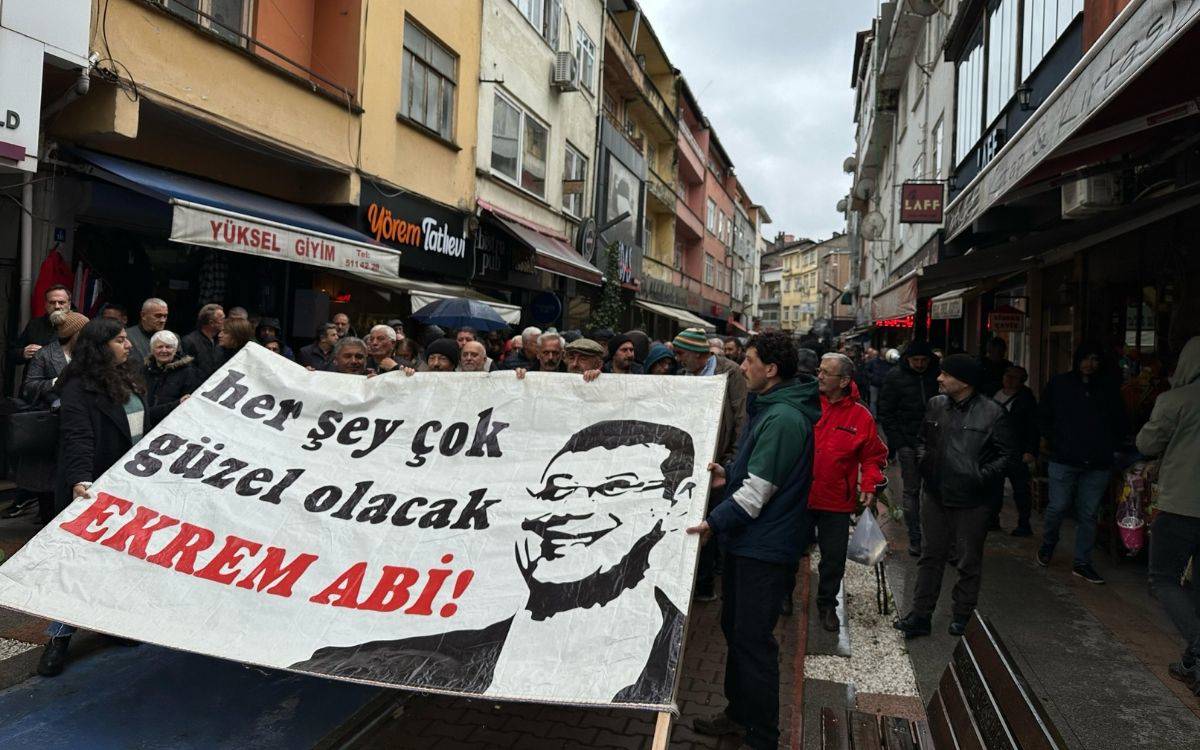
Turkey's independent media protest Google over ‘algorithmic censorship'

Despite health issues, Bahçeli seems at steering wheel of Turkey’s new Kurdish initiative

Turkey’s crackdown on Kurdish political movement expands to ‘terrorist weddings’

Violent protests target refugee community in Turkey’s Kayseri after alleged sexual assault on minor
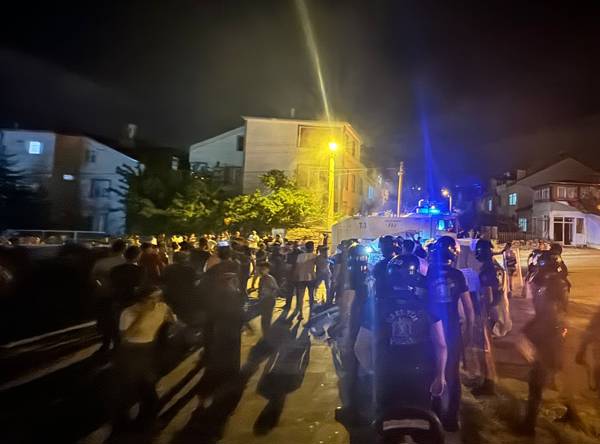




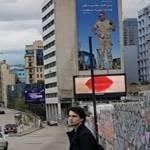
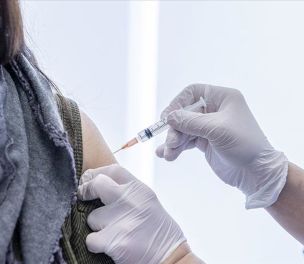
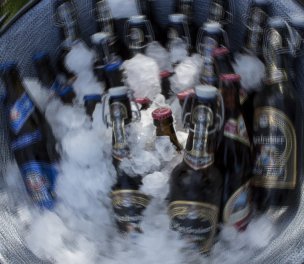
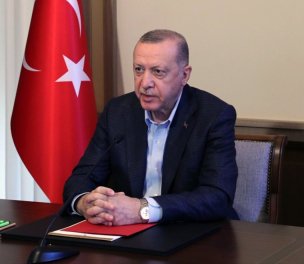
as.jpg)
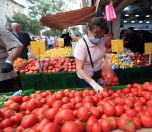
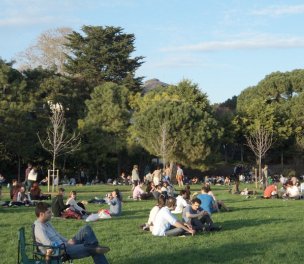
as.jpg)
